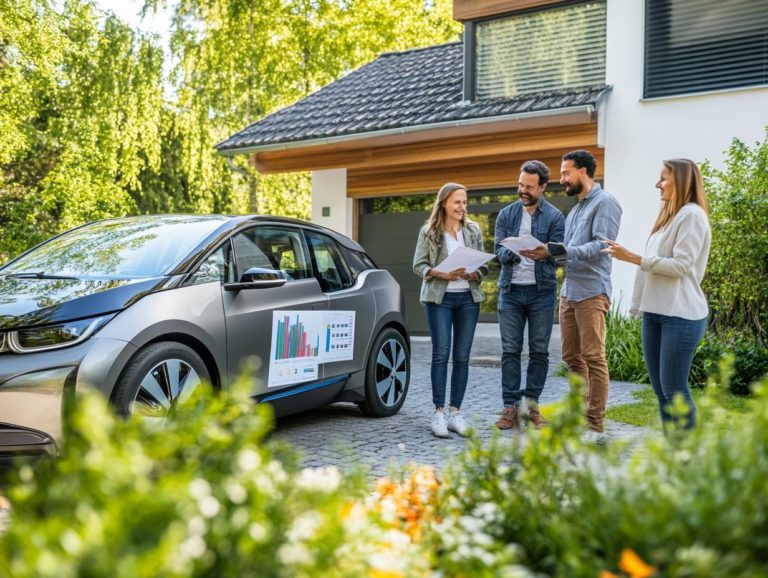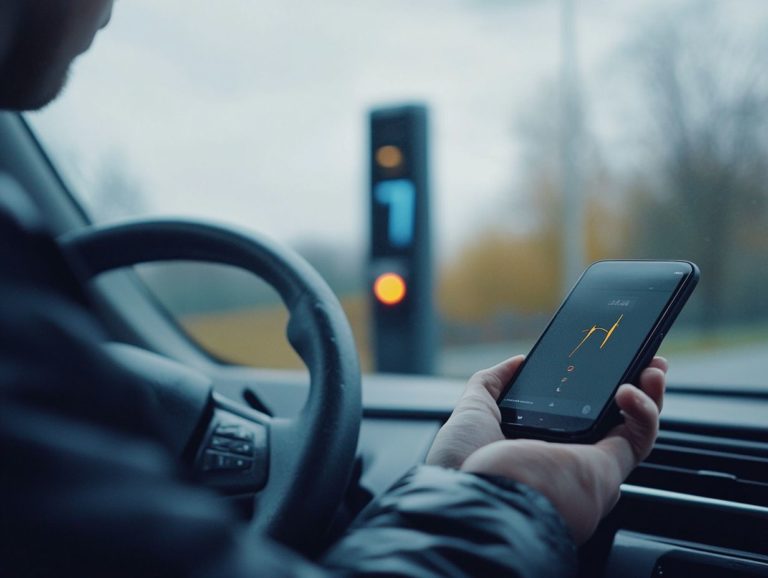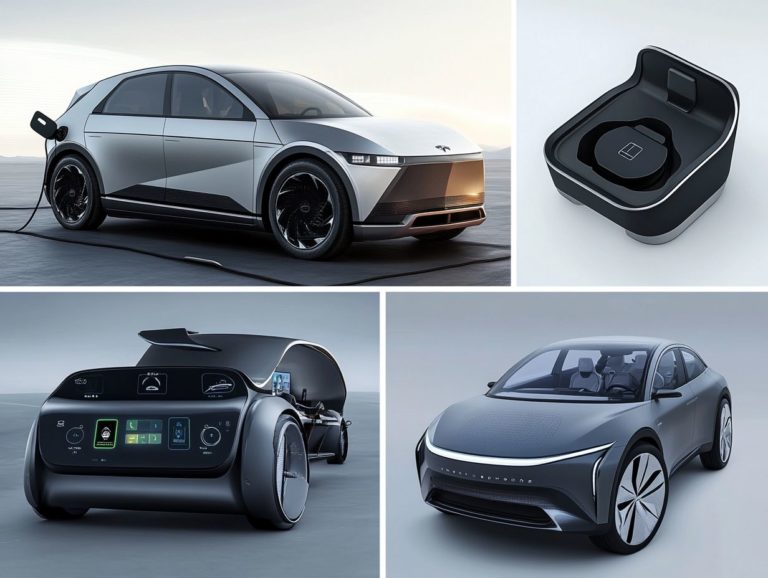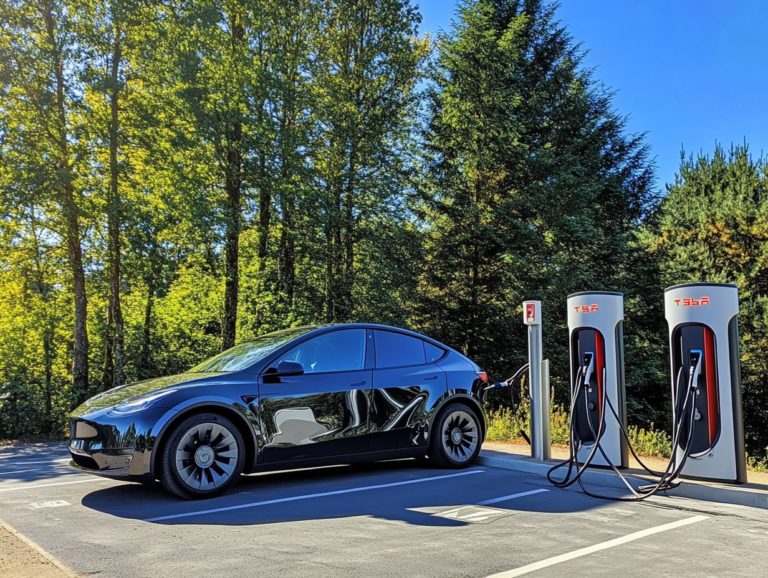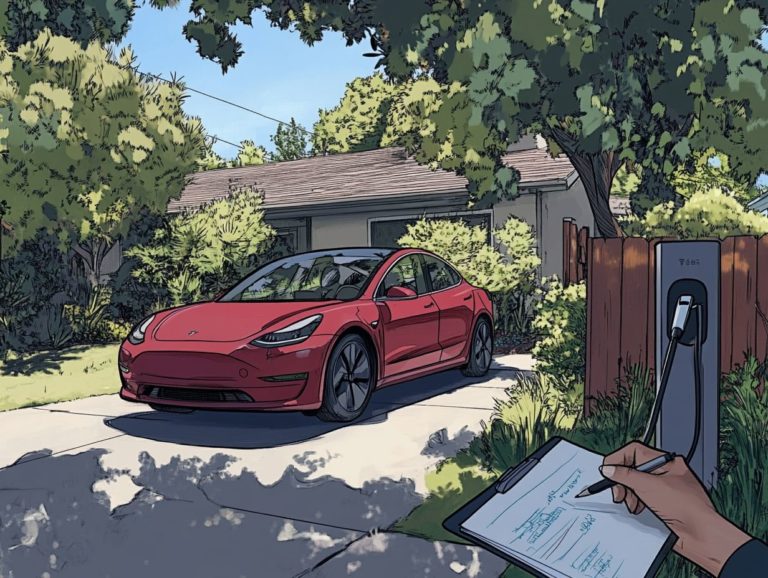What to Know About Leasing vs Buying an EV
Deciding whether to lease or buy an electric vehicle (EV) can feel overwhelming! Let s explore your best options.
This article outlines the pros and cons of each option, guiding you through the advantages and disadvantages of leasing versus buying. It delves into the financial implications, maintenance responsibilities, and personal preferences that are pivotal in your decision-making process.
Whether you re a first-time buyer or an experienced EV owner, understanding these aspects will empower you to make the choice that aligns with your lifestyle and budget.
Contents
- Key Takeaways:
- Pros and Cons of Leasing an EV
- Pros and Cons of Buying an EV
- Financial Considerations
- Maintenance and Ownership Differences
- Factors to Consider When Deciding
- Frequently Asked Questions
- What to Know About Leasing vs Buying an EV?
- What are the main differences between leasing and buying an EV?
- Which option is more cost-effective in the long run?
- What are the pros and cons of leasing an EV?
- What are the pros and cons of buying an EV?
- Are there any incentives for leasing or buying an EV?
- Can I lease or buy an EV if I have a low credit score?
Key Takeaways:
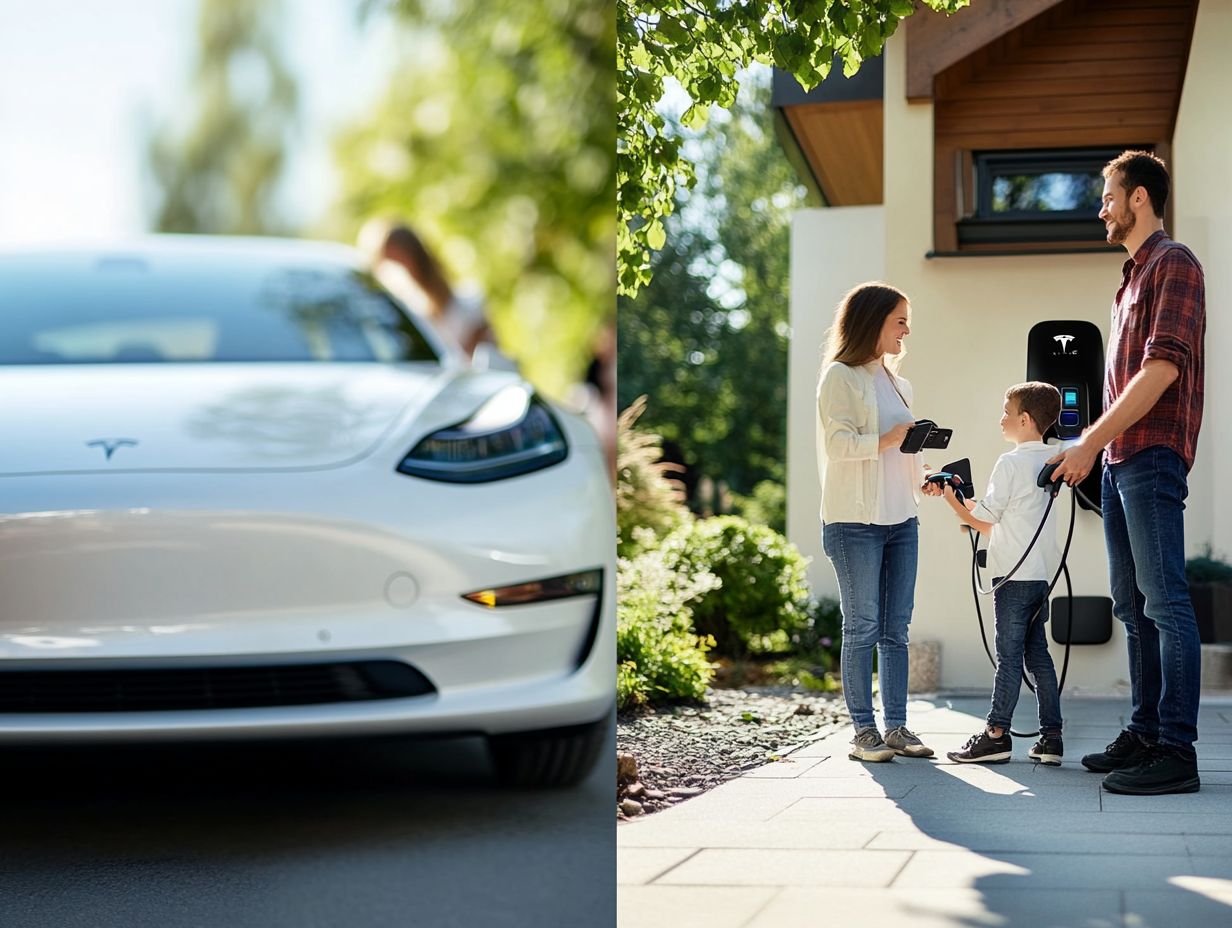
- Leasing an EV allows for lower monthly payments and the ability to upgrade to newer models. However, it comes with mileage limitations and no ownership of the vehicle.
- Buying an EV provides ownership and potential long-term savings. However, it requires a larger upfront cost and responsibility for maintenance and repairs.
- When deciding between leasing and buying an EV, consider financial factors like your budget, driving habits, and available incentives.
Explanation of Leasing and Buying
Understanding the distinctions between leasing and buying an electric vehicle (EV) is vital for you as a prospective car owner. Leasing lets you drive a new vehicle without the lasting commitment that comes with purchasing.
This can be especially appealing if you want to experience the latest technology without the hefty upfront cost associated with outright ownership. Plus, leasing often results in lower monthly payments, making it a financially attractive option for many.
On the flip side, buying an EV typically requires a larger initial investment. However, it can yield long-term financial benefits.
As an owner, you ll enjoy the perks of vehicle warranties and complete control over your car think zero mileage limits and the freedom to modify it however you like. While monthly payments for purchased vehicles may be higher, once the loan is settled, you won t have recurring payments, making buying more advantageous in the long run.
When you buy, you own an asset that can be resold, unlike leased vehicles that must be returned at the end of the term. Therefore, it s essential for you to weigh these financial considerations and understand the advantages and drawbacks of each option to make an informed decision.
Pros and Cons of Leasing an EV
Leasing an electric vehicle (EV) presents a distinct array of advantages and disadvantages that you should consider before making your decision.
One of the most compelling benefits is the lower monthly payment compared to traditional auto loans. This can make the shift to electric driving much more accessible for you.
Furthermore, the availability of various tax incentives can add an enticing layer of appeal to leasing, making it easier for you to afford.
On the flip side, keep in mind the vehicle restrictions and mileage limitations that could influence your overall decision-making process.
Advantages and Disadvantages
Leasing an electric vehicle (EV) brings numerous advantages, such as lower monthly payments and access to the latest technological innovations. However, it s crucial to be mindful of potential downsides, including vehicle restrictions and the possibility of penalties for exceeding mileage limits.
Leasing often provides the opportunity to switch models frequently and benefit from automaker rebates, making it especially attractive for those who crave cutting-edge features.
As a prospective lessee, weigh the long-term financial implications carefully, especially when comparing the costs of leasing versus purchasing. Research indicates that average leasing costs are significantly lower typically around 20% less than traditional financing options, according to Bankrate.
Take models like the Tesla Model 3 and the Chevrolet Bolt; they offer substantial leasing incentives that appeal to budget-conscious drivers. Still, consider the flip side: mileage limits can lead to costly penalties, sometimes up to 25 cents for each mile over the limit.
These factors are vital for anyone thinking about an EV lease, as they can greatly influence overall affordability and the ownership experience.
Pros and Cons of Buying an EV
Purchasing an electric vehicle (EV) offers a unique array of advantages and challenges compared to leasing. When you own an electric vehicle, you enjoy unparalleled freedom and flexibility without mileage restrictions.
However, this autonomy comes with a heftier initial cost and a longer financial obligation. Your monthly auto loan payment may also be more substantial than a lease payment.
As an owner, you can benefit from the resale value down the line and enjoy the full advantages of EV ownership.
Advantages and Disadvantages
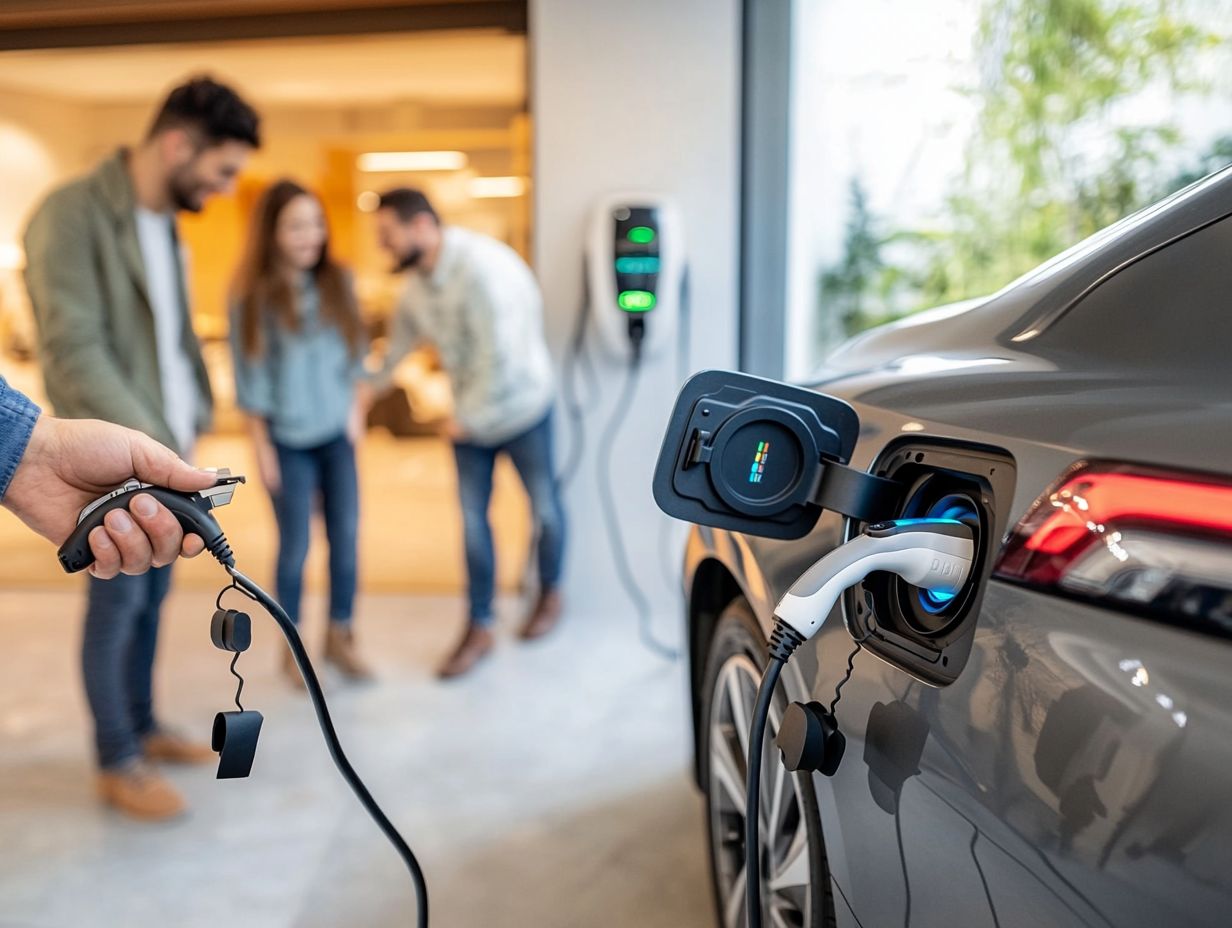
- Complete control over your vehicle.
- Potential for long-term savings.
- Comprehensive warranty coverage.
- Higher monthly payments.
- Increased initial costs.
- Freedom from vehicle restrictions, allowing for limitless mileage and personalized modifications.
When weighing financial implications, it s crucial to consider factors like government discounts for buying electric vehicles and savings on fuel and maintenance over time. For example, the Ford F-150 Lightning demonstrates how EVs can lead to substantial savings, especially for truck users.
While the initial sticker price may give you pause, the complexities of warranties may seem daunting compared to traditional vehicles. It’s important to consider potential infrastructure challenges, such as limited charging stations in some areas, which can affect your daily convenience.
Despite these hurdles, many find that the long-term benefits make this an exciting investment!
Financial Considerations
When evaluating the financial implications of leasing versus buying an electric vehicle (EV), consider various factors, including monthly payment amounts and initial costs.
Act now to maximize your savings through tax incentives and rebates which can greatly influence your overall financial picture. Thoughtfully assess your personal budget and preferences before deciding how to acquire your EV.
Costs and Savings of Leasing vs Buying
The costs and savings associated with leasing versus buying an electric vehicle (EV) can vary dramatically based on your unique circumstances. Leasing typically offers lower monthly payments and minimal upfront costs, while buying demands a more substantial initial cost, potentially leading to long-term savings.
Leasing often includes maintenance services, which can reduce your total cost of ownership. For instance, leasing a popular model like the Tesla Model 3 might cost around $400 a month, while purchasing it could mean financing payments of approximately $650 monthly, not accounting for possible incentives.
Recent statistics reveal that buyers can save an average of $2,500 over five years in maintenance and repair costs if they hold onto their vehicle long-term. Therefore, your decision to lease or buy should involve a thorough analysis of both immediate and future financial implications, particularly when considering the tax credits available for EV purchases.
Maintenance and Ownership Differences
The differences in maintenance and ownership between leasing and buying an electric vehicle (EV) significantly shape your decision-making process. When you lease, included maintenance and warranty benefits can alleviate the burden of upkeep.
Owning an EV means you are responsible for all maintenance and potential repair costs, significantly influencing your long-term ownership experience.
Responsibilities and Benefits of Leasing vs Buying
The responsibilities and benefits of leasing an electric vehicle (EV) versus buying it can significantly influence your driving experience. When you lease, maintenance is often included, allowing you to enjoy the latest features. In contrast, ownership brings long-term responsibilities, such as maintenance and repair costs that require careful planning.
As you contemplate this decision, consider factors like monthly payment fluctuations. Leasing usually means lower monthly payments, making it an attractive option for individuals on a budget. On the other hand, purchasing an EV typically demands a hefty upfront investment, which can be overwhelming.
A 2022 report revealed that 60% of consumers prefer leasing for its flexibility, especially since most leases last about 2-3 years, enabling frequent upgrades. Those who choose to buy may find value in the absence of mileage limits and the chance to build value in their vehicle over time.
Ultimately, each choice presents distinct trade-offs, emphasizing how personal circumstances play a crucial role in your decision-making process.
Factors to Consider When Deciding
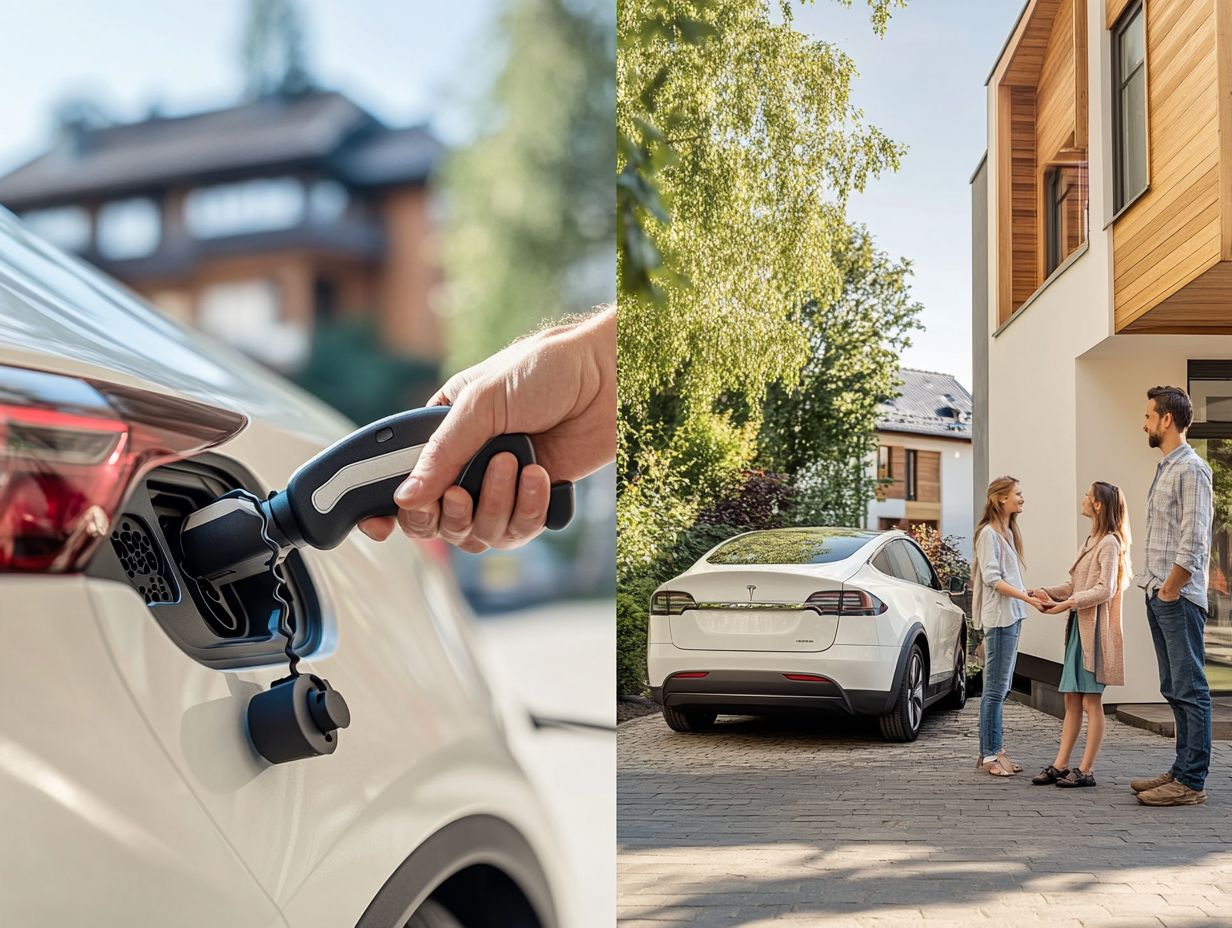
When considering the choice between leasing and buying an electric vehicle (EV), it’s essential to weigh several key factors that fit your unique needs and preferences. By evaluating your financial situation, the driving experience you want, and your future plans, you can identify the option that best suits your lifestyle.
This careful evaluation helps you choose what s best for you and aligns with your personal goals.
Personal Needs and Preferences
Understanding your personal needs and preferences is crucial when deciding between leasing and buying an electric vehicle (EV). Factors like your lifestyle, preferred EV models, and the overall driving experience will guide your choice, ensuring it fits your situation.
For instance, if you have a busy urban lifestyle, you might lean towards compact models like the Nissan Leaf, which offers great maneuverability and range for city driving. If you’re part of a family, a spacious option like the Tesla Model Y could be your priority, focusing on comfort and safety features.
Your driving habits, charging access, and future technology preferences will also impact your decision. You’ll need to think about whether you want the perks of leasing, such as lower monthly payments and access to the latest tech, or if ownership appeals more, allowing for long-term value and personalization.
Frequently Asked Questions
What to Know About Leasing vs Buying an EV?
When deciding whether to lease or buy an EV, there are several important factors to consider. Let’s take a closer look at what you need to know.
What are the main differences between leasing and buying an EV?
The main difference is ownership. When you lease, you are essentially renting the vehicle for a set time, while buying means you own it and can keep it as long as you want.
Which option is more cost-effective in the long run?
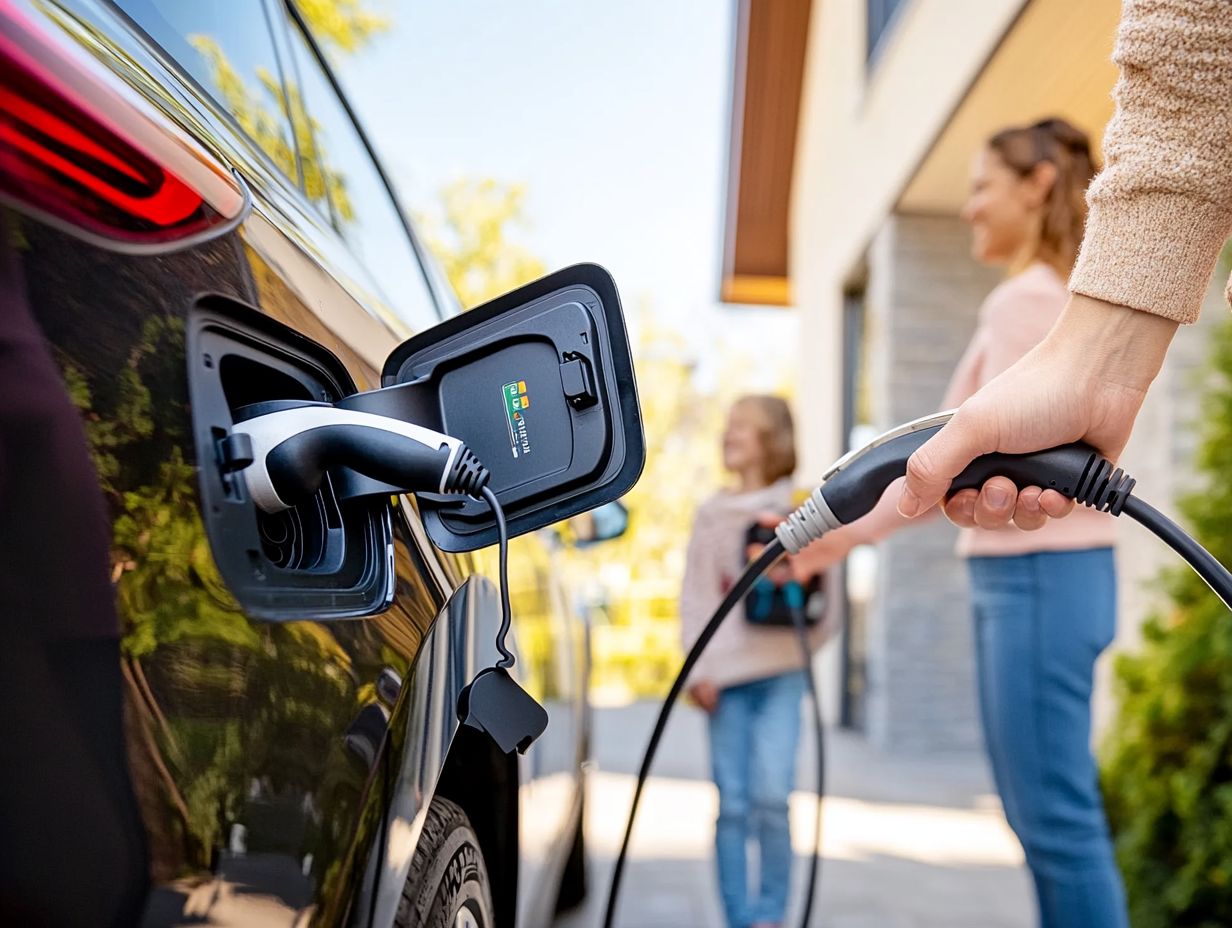
This depends on your personal situation. Leasing typically has lower monthly payments, but you must return the vehicle at the end of the lease. Buying means higher monthly payments, but you can keep the vehicle for as long as you wish. Consider factors like your budget and how long you plan to keep the vehicle.
What are the pros and cons of leasing an EV?
Pros of leasing an EV include lower monthly payments, the ability to upgrade to a new model every few years, and typically lower maintenance costs. Cons include mileage restrictions and the fact that you do not own the vehicle at the end of the lease.
What are the pros and cons of buying an EV?
Buying an EV has its perks. You can enjoy ownership without mileage restrictions and may save money in the long run.
On the flip side, expect higher monthly payments and possibly increased maintenance costs. Plus, you’ll need to consider how to resell or trade in the vehicle when you’re done with it.
Are there any incentives for leasing or buying an EV?
Yes! There are often money-saving options for leasing or buying an EV. You might find tax credits, which reduce your taxable income, rebates, which give you cash back, or special financing offers that can help you save.
Always research and compare these options before making your final decision.
Can I lease or buy an EV if I have a low credit score?
Don t worry! You can still lease or buy an EV, even with a low credit score. Some dealerships offer special financing programs tailored to those with lower scores.
It’s essential to shop around to find the best offers available for your situation.

